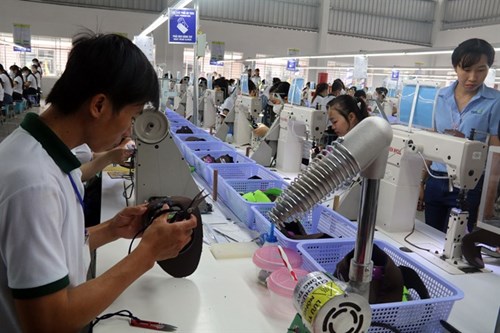Kasper Rorsted, General Director of Adidas, said that Vietnam produced 44 percent of its output in 2017, while China, which used to be its biggest manufacturer, only made 19 percent.
    |
 |
|
Shoes are made by workers at Thai Binh leather and footwear company in the southern province of Kien Giang. (Photo for illustration) |
The German company expects that production will continue to shift from China to Vietnam, and that Vietnam will produce more than half of Adidas footwear by the end of 2019.
According to a source from Nike, the company began investing more in Vietnam around five to seven years ago thanks to the reasonable labour cost and now accounts for almost half of Vietnam’s total footwear exports.
For Puma, the company also has 30 percent of its products made in Vietnam, and plans to do more business here if the US hikes taxes on Chinese footwear and clothing.
Nguyen Duc Thuan, Chairman of the Vietnam Leather, Footwear and Handbag Association (LEFASO), said many multi-national footwear and clothing companies are making their products in this country because of the affordable labour costs and Vietnam’s free trade agreements with many countries.
Though labour costs have been rising over the years, it is still cheaper than some other big shoes markers like China, India and Thailand.
The experienced workforce which has been working with multinational brands also makes Vietnam an attractive location for big footwear brands.
According to LEFASO, Vietnam exported around 14.67 billion USD worth of footwear last year, ranking second in the world.
It shipped to over 100 countries.
In the first four months of this year, the industry’s exports were worth 4.5 billion USD, and the full-year target is 20 billion USD.
More than 80 percent of exports are by foreign-invested companies.
Source: VNA